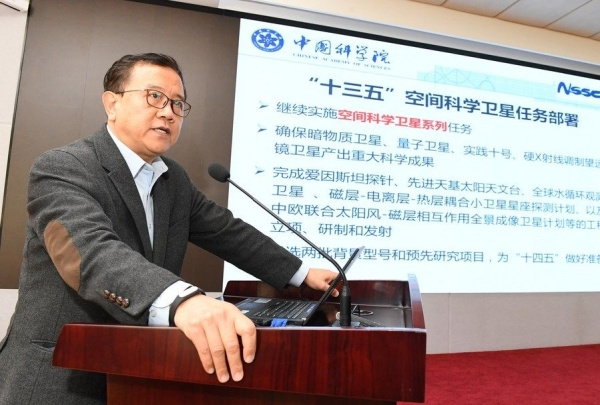

In 2011, the Chinese Academy of Sciences initiated a space science project. As the then director of the National Space Science Center, under the auspices of the Chinese Academy of Sciences, Wu led the special project that has produced a series of scientific satellites, including the Dark Matter Particle Explorer, also known as Wukong, the world's first quantum satellite; Quantum Experiments at Space Scale, also known as Mozi; the Hard X-ray Modulation Telescope, as well as the Shijian-10 recoverable satellite.
"China is a big country and should contribute to human civilization. Scientific discoveries are shared by humanity, and China's breakthroughs in frontier science are the achievements of all mankind," Wu says.
He believes that international cooperation should be actively pursued in frontier science fields such as space science, because funding is limited in a single country, and cooperation can avoid duplication of investment and enable all parties to gain greater benefits.
"In space weather research, for example, no single country can obtain complete data on its own. Therefore, international cooperation is essential and indispensable," Wu adds.
His enthusiasm for international cooperation was not dampened by the ongoing COVID-19 pandemic. Last month, Wu chaired a forum on space science cooperation in the city of Taiyuan, North China's Shanxi province.
During the forum, Wu and more than 30 global scientists and management experts called for deeper space science cooperation.
According to Wu, China and other countries will cooperate extensively in the field of space science in the future.
"The Chinese space station will be open to foreign astronauts. It will be part of mankind's journey outside Earth and will contribute to building a community with a shared future for humanity," he says.